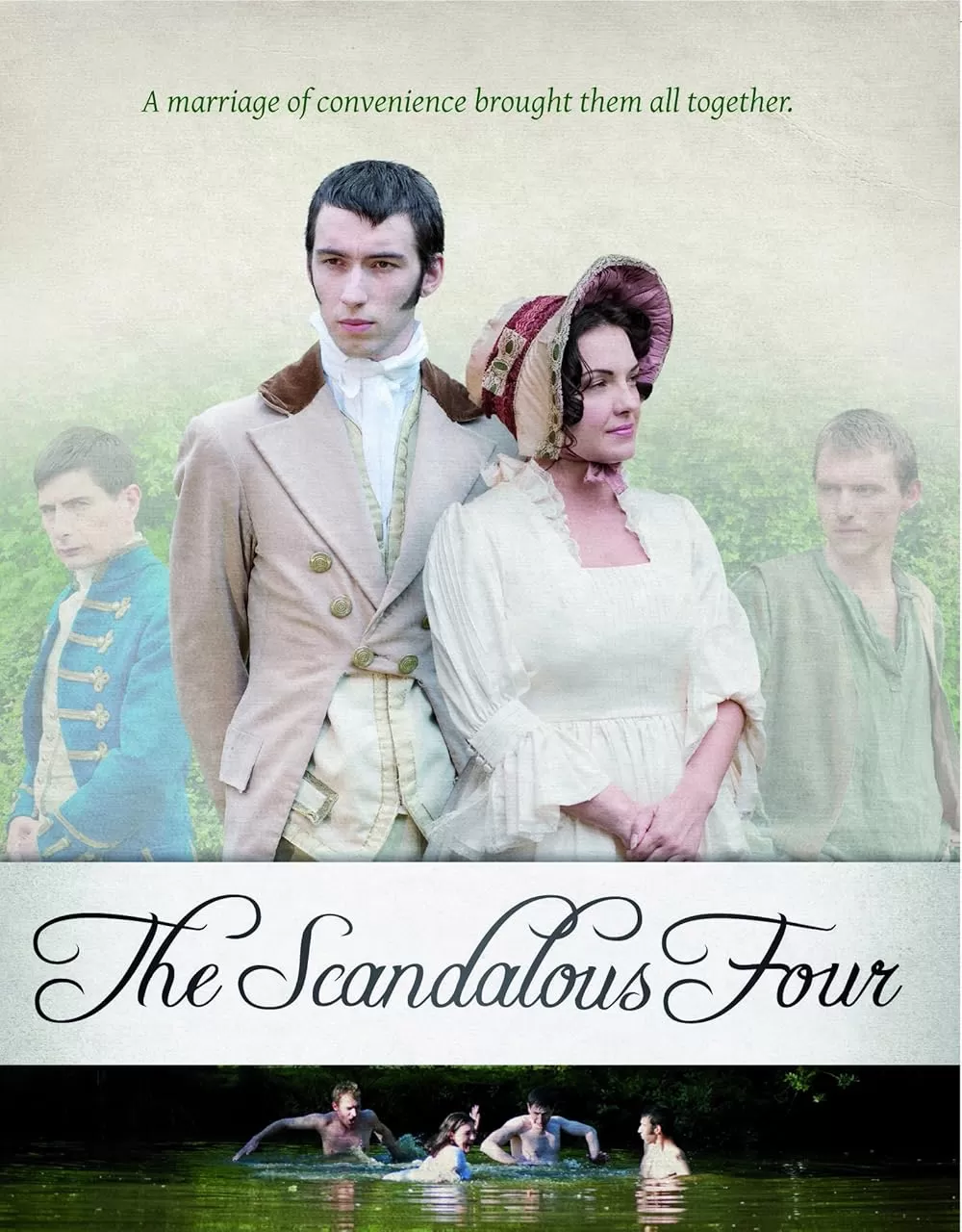“The Scandalous Four (UK)” plunges viewers into the tangled web of 1930s England, where societal norms tighten their grip and secrets dwell in shadowy corners of grand estates. This period drama sets itself apart by daring to riff on themes seldom voiced in such historical settings: hidden desires, forbidden love, and the suffocating rules that bind its characters. At the heart of the story is Penelope, a young woman caught between duty and longing, whose life is reshaped by the quiet storms brewing in her marriage and those around her.
From the moment Penelope is paired with her introverted husband Jonathan, it’s clear that this isn’t your typical romance. Jonathan’s aversion to social gatherings and their unconsummated union cast an oppressive hush over their grand but empty estate — a place where silence screams louder than words. When Penelope uncovers the tender liaison between Jonathan and the ever-present butler, George, the household’s intricate balance begins to shift. In a twist that feels equal parts surprising and inevitable, Penelope finds an unexpected ally and lover in her now-gardener and former piano teacher, Richard. What unfolds is a fragile ménage that dances precariously on the edges of secrecy and societal judgment.
Watching their story unfold, I couldn’t help but think of this group as ships trying to navigate a storm without anchor — their camaraderie as delicate as glass, yet paradoxically enduring. The constant fear of exposure hovers like a dark cloud, especially with nosy maids and a rigid, religious family looming in the background. The question that kept gnawing at me was: how long can this carefully constructed facade endure before shattering spectacularly?

What truly intrigued me was how the film ventured bravely into the taboo territories of promiscuity and homosexuality within a setting that typically glosses over these realities. It’s refreshing — like a gust of wind through a musty parlor — to see these human complexities given space amidst corseted shoulders and polished etiquette. However, I must admit, the film’s ambitions occasionally outpace its means. Budget constraints slap the viewers with moments where the intended grandeur feels more like a sketch than a masterpiece. The lavish estate instead appears worn, its elegance whispered rather than shouted across the screen.
Furthermore, once the secret is out in the open, the narrative begins to falter. The tension dissipates, and the dramatic stakes shrink until conflicts resolve with a suspiciously light touch, almost as if sewn together with invisible thread. For instance, George’s sudden role as Penelope’s caretaker when she falls ill felt forced, bordering on comical rather than compelling. Yet, perhaps it’s this very simplicity that charmed me. The film doesn’t wrap everything in a neat bow, nor does it drown the story in overwrought melodrama. Instead, it feels like sitting with old friends sharing whispered secrets — flawed, messy, but heartwarmingly real.
The cast delivers commendable performances, breathing life into this unconventional tale, despite its modest production values. At times, I found myself chuckling at the film’s earnestness, wondering what the creators were thinking with certain scenes, and yet, that very quirky energy made the experience memorable. It’s a bit like spotting a diamond in the rough — imperfect, but shining with its own distinct glow.
In the end, “The Scandalous Four” is far from flawless, but it carries an undeniable spark that ignites curiosity and empathy. It reminds me how love, in all its complicated forms, can flicker defiantly even in the darkest of times. Would I watch it again? Absolutely — if only to unravel once more the tangled threads of desire, secrecy, and the courage to live one’s truth against all odds.


The tension between Penelope and Jonathan’s unconsummated marriage felt achingly real—how their estate’s silence mirrors their emotional distance. George’s quiet presence as both butler and confidant adds layers to the story’s exploration of societal repression. It’s the unsaid things here that lingered with me.